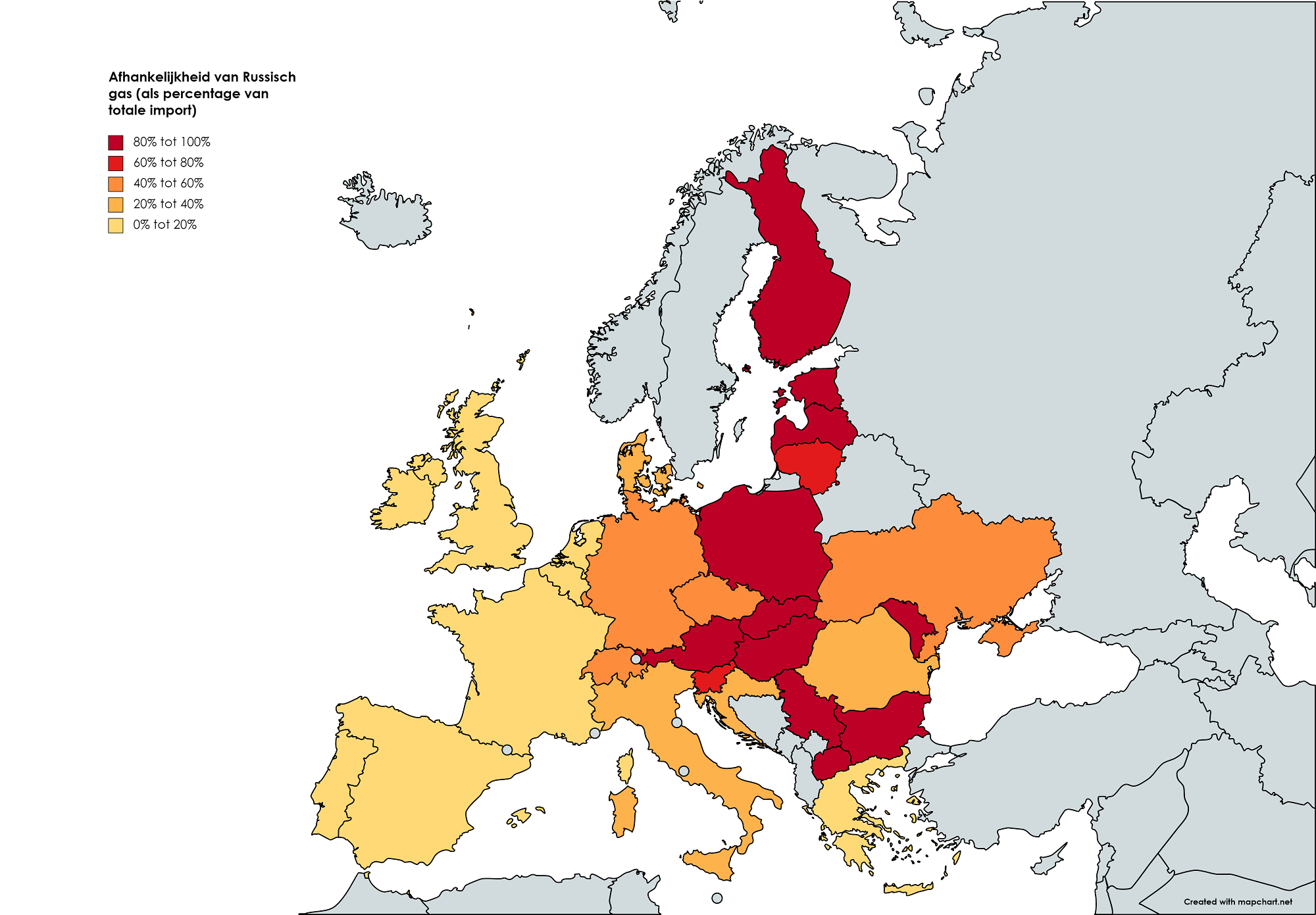9.3
8.064 reviews

English
EN
In response to Russia's invasion of Ukraine, Europe has imposed several sanctions on Russia. Many of these sanctions are symbolic in nature, because we as Europe are still very dependent on Russia. 40% of European natural gas imports come from Russia, while that share for oil is about 25%. This explains why there is little enthusiasm among European government leaders to impose an export ban. As long as there are no alternatives to oil and gas, this is simply impossible. But which countries are the most dependent?
The first map below shows per country what percentage of the total demand for gas is met by Russia. As you can see, the countries that are close to Russia are particularly fond of Russian gas. That's because most of the gas is brought in via pipelines and these countries are closest to the source. If we continue towards the west of Europe, we see that the share of Russian gas is falling rapidly. The Netherlands is less dependent on Russian gas due to the gas field in Groningen, while France is less dependent on gas for its power supply due to the large number of nuclear power plants. The United Kingdom imports proportionally more gas from Norway, while countries such as Spain and Portugal are more dependent on liquefied natural gas and supplies from North Africa. 
How dependent is Europe on Russian gas?
If we look at the oil market, we see that the dependence on Russia is generally somewhat smaller. This is because oil is mainly transported by ship, making it easier for countries to find alternative suppliers on the global oil market. This map shows that Eastern European countries in particular are highly dependent on Russian oil, but that Western Europe also relies on Russia for a significant part of its oil demand. It is easier for European countries to find alternatives to oil than to gas, but becoming fully independent of Russia remains a major challenge. Not every oil is the same, and refineries in Europe are attuned to the oil they currently process. For example, Russian oil still appears to be very important for supplying the European market with sufficient diesel. A good alternative is difficult to find in the short term, which is why Shell was recently forced to buy a shipment of Russian oil.
How dependent is Europe on Russian oil?
This contribution comes from Geotrendlines
![]() Have a look at us YouTube channel
Have a look at us YouTube channel
On behalf of Holland Gold, Paul Buitink and Joris Beemsterboer interview various economists and experts in the field of macroeconomics. The aim of the podcast is to provide the viewer with a better picture and guidance in an increasingly rapidly changing macroeconomic and monetary landscape. Click here to subscribe.
